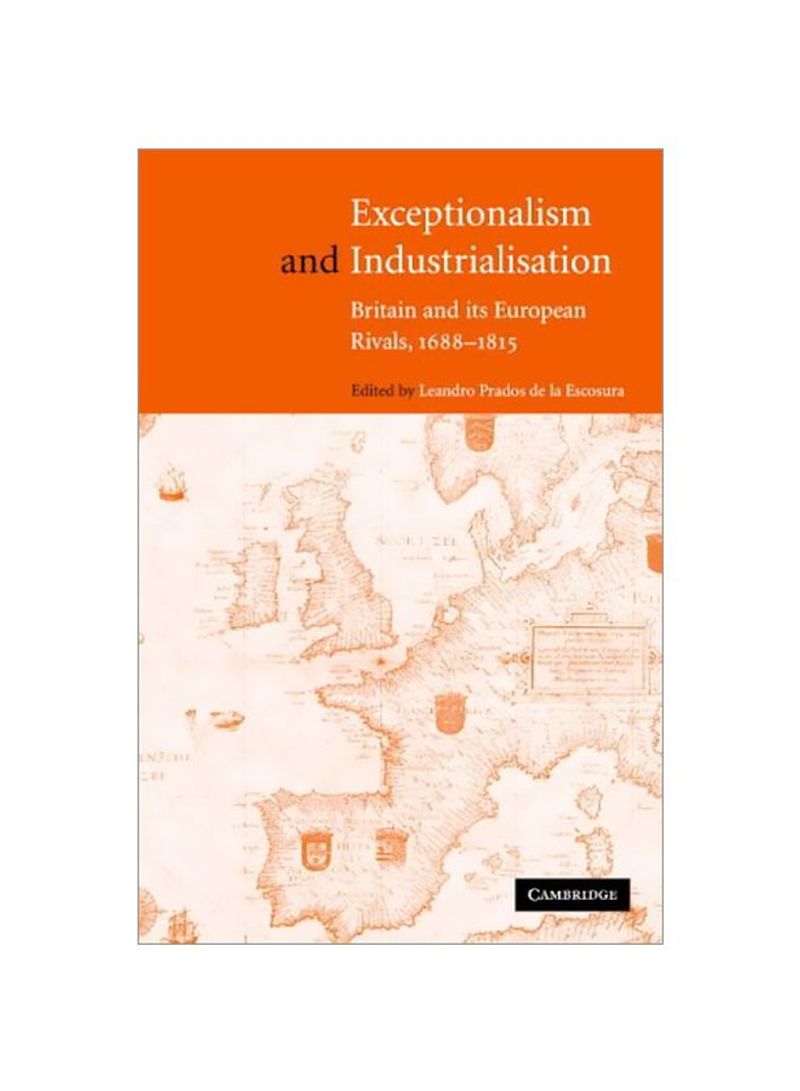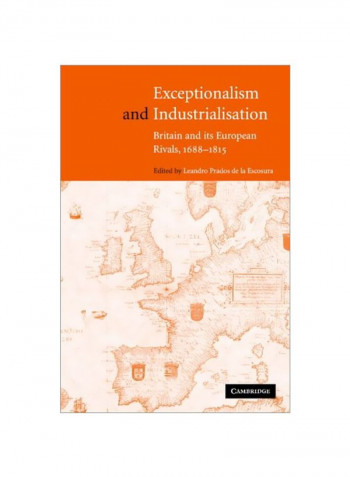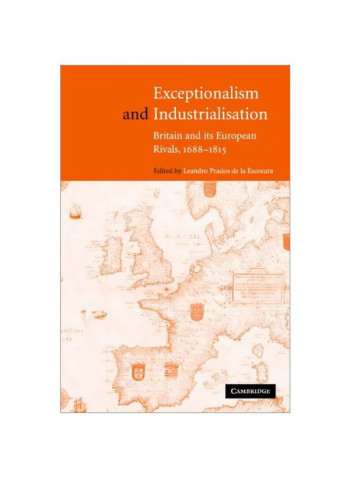Exceptionalism And Industrialisation: Britain And Its European Rivals, 1688 1815 Hardcover
Recommend
Sort by
Rating
Date
Specifications
Author 1
de la Escosura, Leandro Prados
Book Description
This 2004 book explores the question of British exceptionalism in the period from the Glorious Revolution to the Congress of Vienna. Leading historians examine why Great Britain emerged from years of sustained competition with its European rivals in a discernible position of hegemony in the domains of naval power, empire, global commerce, agricultural efficiency, industrial production, fiscal capacity and advanced technology. They deal with Britain's unique path to industrial revolution and distinguish four themes on the interactions between its emergence as a great power and as the first industrial nation. First, they highlight growth and industrial change, the interconnections between agriculture, foreign trade and industrialisation. Second, they examine technological change and, especially, Britain's unusual inventiveness. Third, they study her institutions and their role in facilitating economic growth. Fourth and finally, they explore British military and naval supremacy, showing how this was achieved and how it contributed to Britain's economic supremacy.
ISBN-13
9780521793049
Language
English
Publisher
Cambridge University Press
Publication Date
17 September 2007
Number of Pages
352
About the Author
Leandro Prados de la Escosura is Professor of Economic History at Universidad Carlos III, Madrid, and Prince of Asturias Distinguished Visiting Professor at the University of Georgetown.
Editor 1
Leandro Prados de La Escosura
Editorial Review
Review of the hardback: '... splendidly informative and thought provoking tribute to a great economic historian.' Times Literary Supplement Review of the hardback: 'We are brought to the very brink of a new phase of research by this highly significant and suggestive volume.' Business History Review of the hardback: '... consistently interesting and focused. This book is an important collection.' History



